June 01, 2022 | News | Research Visit
Population and Social Data Science Summer Incubator Program

© MPIDR
The Max Planck Institute for Demographic Research (MPIDR) is organizing and hosting the Population and Social Data Science Summer Incubator Program, a 3-month research visit (from June 1 – August 30, 2022) for a diverse group of PhD and master students.
The goal of the Summer Incubator Program is to enable discovery by bringing together data scientists and population scientists from around the world to work on focused, intensive and collaborative projects of broad societal relevance.
Participating students will work in small teams, with support from experienced mentors, towards a common research goal. In the Summer, the Incubator is coordinated by Rumi Chunara (New York University and Max Planck Sabbatical Awardee), Ugofilippo Basellini and Emilio Zagheni. The program focuses on risk prediction models, including concepts spanning demography, fragility, and social vulnerabilities.
Participating students will be exposed to best practices across social and data sciences while contributing to a hands-on project experience. All participants will also have access to lectures and participate in other scientific activities happening at the MPIDR.
Organizers

© MPIDR
Ugofilippo Basellini is a Research Scientist in the Laboratory of Digital and Computational Demography at the Max Planck Institute for Demographic Research, where he chairs the Research Area on Aging and Generational Processes. Moreover, he is an Associated Researcher at the Institut national d’études démographiques. His main research interests are related to statistical demography, with a particular focus on mortality modelling and forecasting, lifespan inequality and formal demographic methods for the study of mortality.

© Vincent C. Auyeung
Rumi Chunara is an Associate Professor at New York University, jointly appointed at the Tandon School of Engineering (in Computer Science) and the School of Global Public Health (in Biostatistics/Epidemiology). Her PhD is from the Harvard-MIT Division of Health Sciences and Technology and her BSc from Caltech. Her research group focuses on developing computational and statistical approaches for acquiring, integrating and using data to improve population-level public health. She is an MIT TR35, NSF Career, Facebook Research and Max Planck Sabbatical award winner.
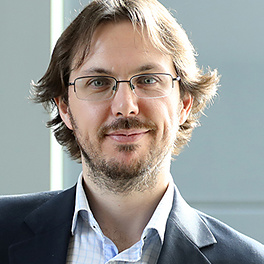
© MPIDR
Emilio Zagheni is Managing Director of the Max Planck Institute for Demographic Research. He is best known for his research on combining digital trace data, traditional sources, and new forms of data collection, within solid statistical and formal demographic frameworks, in order to advance population science. In his various professional capacities, he has played a key role in favoring collaboration and exchange between demographers, statisticians and computer scientists.
Additional Mentors
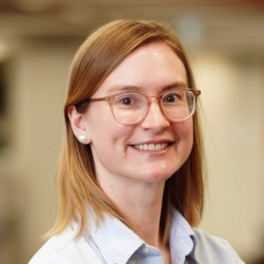
© Monica Alexander
Monica Alexander is an Assistant Professor in Statistical Sciences and Sociology at the University of Toronto. Her research focuses on developing statistical methods to help measure disparities in demographic and health outcomes. She received a PhD in Demography and a Master in Statistics from the University of California, Berkeley. She has worked on research projects with organizations such as UNICEF, UNHCR, and the World Health Organization. Her work has appeared in journals such as Demography, Epidemiology, The Lancet Global Health, and JAMA.
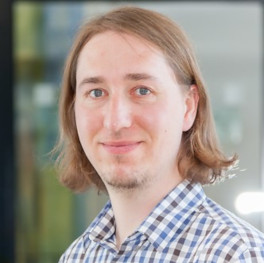
© MPIDR
Tom Theile is Software Developer in the Laboratory of Digital and Computational Demography at the Max Planck Institute for Demographic Research. He helps and works together with the researchers of the lab in projects with extensive data collections or which need big data processing and develops computational tools for research.
Participating Students
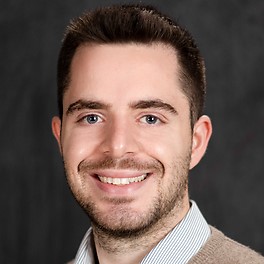
© Luca Badolato
Luca Badolato is a PhD Student in Sociology at The Ohio State University. He is especially interested in combining traditional and innovative data sources and statistical methods to answer longstanding demographic questions, with a primary focus on fertility desires, fertility outcomes, and, more broadly, population dynamics. He received an M.Sc. in Economic and Social Sciences from Bocconi University.
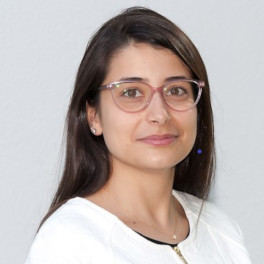
© MPIDR/Wilhelm
Carolina Coimbra Vieira is a PhD Student at Max Planck Institute for Demographic Research. She received her B.Sc. and M.Sc. in Computer Science from Universidade Federal de Minas Gerais (UFMG) in Brazil. Carolina’s research focuses on interdisciplinary topics at the intersection of computer science and the use of social media data to study the bidirectional relation between migration and cultural diffusion.
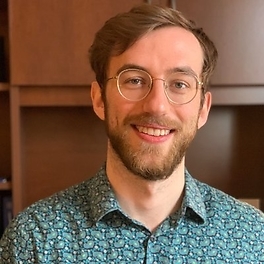
© Ari Decter-Frain
Ari Decter-Frain is a doctoral student in the Brooks School of Public Policy at Cornell University and a Doctoral Fellow of the Social Sciences and Humanities Research Council of Canada. His research uses non-traditional data and machine learning to improve applied demographic measurement. He has also developed open-sourced software for analysing US elections and worked as a machine learning engineer at Graphika Technologies.

© Nicholas Irons
Nicholas Irons is a PhD Student in the Department of Statistics at the University of Washington. His research focuses on development of methods and applications of (Bayesian) statistics to the social sciences, with the goal of informing public policy design and evaluation. He is advised by Adrian Raftery and his work is supported by an NICHD training grant to the UW Center for Studies in Demography & Ecology.
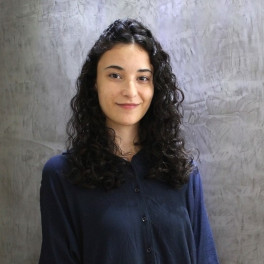
© Maria Laura L. Miranda
Maria Miranda is an MA Student in Demography at the Center for Development and Regional Planning (Cedeplar), Federal University of Minas Gerais (UFMG), Brazil. She holds a BA in Statistics from UFMG, where she applied survival models to understand the underrepresentation of women in STEM occupations. Maria also worked as a data scientist at Take Blip. Her research interests include even formal (statistical and mathematical) demography, mortality, and demographic projections.

© Ronak Paul
Ronak Paul is currently a doctoral scholar at the Department of Public Health and Mortality Studies, International Institute for Population Sciences (IIPS). He completed his postgraduation and pre-doctoral training from the IIPS. He is a Demography and Public health student with research interests in mortality, child development, health behaviour and ageing & health. Currently, he is focused on examining the clustering of infant deaths in South Asian countries.

© Sean Reid
Sean Reid is a PhD Student in the Geography Department at UC Santa Barbara. Sean´s research interests are broadly in urban and population dynamics as they relate to health, infectious disease, migration, climate change, natural disasters, and conflict. He is particularly interested in data underrepresentation for at risk populations. His current research is focused on migration of sexual minorities in the United States and contextual factors that influence their health outcomes.
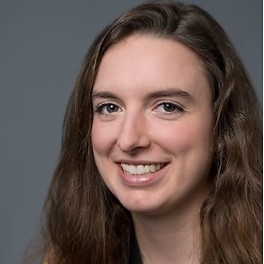
© Erin Walk
Erin Walk is a PhD Student in Social and Engineering Systems at MIT. Her work focuses on using social media and other large scale data sources to understand conflict and support hard to reach populations, with current projects examining narratives around violence and refugee return in Syria. She has been supported by the Michael Hammer Fellowship and the NSF Graduate Research Fellowship Program.

© Christopher Wolfe
Christopher Wolfe My name is Christopher Wolfe and I am a PhD candidate at the University of Nevada, Reno. I received my MA in Anthropology from Texas State University and my BA in Archaeology and Anthropology from Dickinson College. While broadly trained as a biological anthropologist, my research crosscuts disciplines by combining Bayesian and/or Machine Learning techniques to highlight the intersection of the multi-dimensional human phenotype and the multi-dimensional social world.
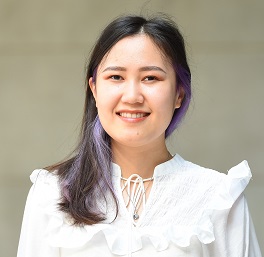
© Elnura Zhalieva
Elnura Zhalieva is a Master Student of Machine Learning at Mohamed Bin Zayed University of Artificial Intelligence (MBZUAI) in Abu Dhabi. Her main research interest is applying Bayesian Deep Learning in survival analysis to achieve better uncertainty representation of predictions and improve model generalization. She likes the diversity within the research and has worked on various projects such as modeling the dynamics of Covid-19 using stochastic processes and applying Reinforcement Learning for the renewable energy price prediction.

© Yan Zhang
Yan Zhang I am a DPhil candidate at the Department of Sociology at the University of Oxford. My research focuses on fatherhood and children's wellbeing from a gender perspective in the context of China's Great Migration and I use a mix of quantitative and qualitative methods. I hold a Master of Social Work from Columbia University and an MSc in Social Research Methods from the University of Warwick. Before my current studies, I worked at UNICEF as a Child Protection Officer.
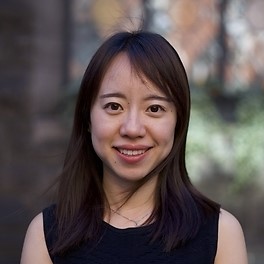
© Yuan Zhao
Yuan Zhao is a Doctoral Student at NYU School of Global Public Health, advised by Rumi Chunara. She was previously trained in the interdisciplinary area of infectious disease epidemiology and causal inference using machine learning methods. Her research interests include developing causal models to assess the effect of social determinants and health care utilization and improving algorithmic fairness/interpretability of machine learning models predicting various health outcomes.